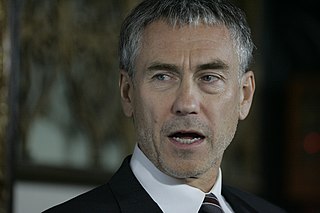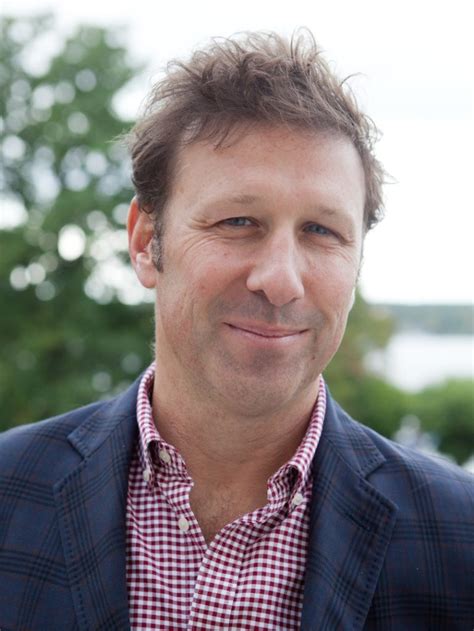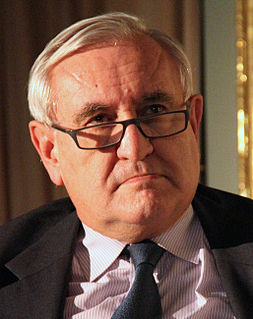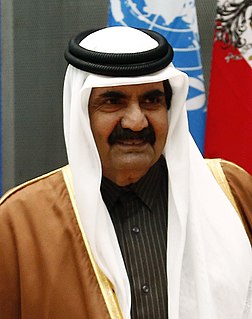Top 1200 Developing Countries Quotes & Sayings - Page 4
Explore popular Developing Countries quotes.
Last updated on April 21, 2025.
As more girls get basic schooling, larger numbers will move up the educational ladder - some to pursue science, technology, engineering, and mathematics. That's important because workplaces around the world, especially in many developing and emerging-market countries, are becoming more automated, favouring workers with technical skills.
The best thing that we can do on climate change is make sure that China converts to a more nuclear future to limit those - that one coal-burning plant coming on a week that we expect - that would really help the planet. We need to work cooperatively with developing countries to make sure they emit less.
You can get an ice-cold Coke for around fifty cents in most developing countries, not just in the major population centers, but at the most remote and surprising places. The logistical challenges to resupplying all these outlets are enormous - and yet, the entire system works with incredible efficiency as is confirmed by the price of the product.
Big meetings and big talk are not enough in a world that is hungry for change. Big action - world leaders keeping their promises, and developing countries committing resources while listening ardently to the voice of the small farmer - is needed to bring big results and prosperity to the world's poor.
Outside of a Grand Slam, I don't think there's a tournament in the world that has this many top players representing their countries. It's really remarkable that we have this many No. 1's. And with so many countries being represented, it's going to give the fans from Las Vegas who are from those countries a chance to come out and root for their countrymen.
In many developing countries, girls don't go to school. They stay home. They are at the water wells, bringing water back and forth to the village. Or they are doing chores, preparing meals, farming. Some cultures think girls and women shouldn't be educated, and those are very often the places where the treatment of women and girls is the worst.
Oil is a very valuable resource for life - electric heaters. We must have to transition ourselves to a post-oil era. And that's what we must discuss: searching and developing new sources of energy. And that requires scientific research. That requires investment. And the developed countries must be the ones to assume this responsibility first.
Surely there must be some way to find a husband or, for that matter, merely an escort, without sacrificing one's privacy, self-respect, and interior decorating scheme. For example, men could be imported from the developing countries, many parts of which are suffering from a man excess, at least in relation to local food supply.
Our economic assistance must be carefully targeted, and must make maximum use of the energy and efforts of the private sector... Economic freedom is the world's mightiest engine for abundance and social justice... Developing countries need to be encouraged to experiment with a growing variety of arrangements for profit sharing and expanded capital ownership.
Behind Trump's promise to 'make America great again' lie many fallacies. The most important fallacy is that America's place in the world can be restored to the one it occupied after World War II, when Europe was still recovering from vast devastation and most developing countries were still European colonies. It can't be.
Some people say that the West has a cruel history. These people also may see the achievements of Western countries - in terms of the economy, education, health, and social achievements - as a result of exploitation of poorer countries, including Arab countries. Western nations get rich by using resources such as Arab oil. Meanwhile, the countries supplying them raw materials remain poor. Due to such injustices, jealousies are created.
With few exceptions, democracy has not brought good government to new developing countries. What Asians value may not necessarily be what Americans or Europeans value. Westerners value the freedoms and liberties of the individual. As an Asian of Chinese cultural backround, my values are for a government which is honest, effective and efficient.
Making loans and fighting poverty are normally two of the least glamorous pursuits around, but put the two together and you have an economic innovation that has become not just popular but downright chic. The innovation - microfinance - involves making small loans to poor entrepreneurs, usually in developing countries.
Plant genetic resources are seldom 'raw materials'; they are the expression of the current wisdom of farmers who have played a highly significant role in the building up of the world's genetic resource base... As is already happening in my country, farmers and national genebanks in developing countries can work together to preserve and expand crop genetic diversity on behalf of all humanity.
America is among the countries the advance countries with the least equality of opportunity, which means that the - while I prospects of young American, a more dependent on the income and education's parents (ph) than another - other countries. So this notion of equal opportunity is sort of American dream is, is now a myth.
It wasn't openly talked about very much, in the sense that people said they wanted to beat GB at this or that, but there would however be sidelong comparisons frequently in press commentary. And it was also pretty quickly obvious that no other countries were developing the kind of technological depth of industry as were the US and the UK.
We are developing in the United States a huge underclass of unwanted people, many of them the descendants of the exploitation of the South American and Latin American countries by American piratical capitalism. Not all capitalism is piratical, but some of it certainly is. And we have a fantastic gap beginning to exist between rich and poor.
Climate experts say we should tell villagers in developing countries to reduce the amount of cooking smoke they generate to help fix global warming. You know, it's as if these people don't hate us enough already. I mean, they live in mud huts, they have thatch roofs, their clothes are made of straw. We pull up in a bunch of Humvees and SUVs going, 'Hey, you want to cut the smoke out of here?'
Human security recognizes the importance of individuals and that the key to ensuring growth in developing countries is to foster individual talent and abilities, build self-reliance, and put people in a position to make a broader contribution to society. Growth must be inclusive, and no one must be left behind.
If the level and amount of consumption and waste of the western rich countries ever reaches the poor countries, it will mean the end of humanity. The big world corporations are busy doing it...The production, selling, consumption, accumulation, wastes' and advertisement explosions in the western rich countries and the continued population explosion in the poor countries will turn into major catastrophes.
You may know that in India now the Tata car is becoming all the rage; you can buy it for one lakh - $2000 dollars - it's very, very cheap. So India seems to be going the route that China went a few years ago and that developing countries all over the world seem to want to follow, namely, to rely on these personal vehicles, which is just an irrational way of organizing transport.
Some remain great cities, but they shouldn't stand still. They should move in the direction of a knowledge-oriented society. Most cities have to do something to draw attention to themselves and make their particular assets visible on the international radar. I'm not talking about developing countries, but about the United States and Europe.
People always think of technology as something having silicon in it. But a pencil is technology. Any language is technology. Technology is a tool we use to accomplish a particular task and when one talks about appropriate technology in developing countries, appropriate may mean anything from fire to solar electricity.
The international institutions go around the world preaching liberalization, and the developing countries see that means open up your markets to our commodities, but we aren't going to open our markets to your commodities. In the nineteenth century, they used gunboats. Now they use economic weapons and arm-twisting.
Developing countries can make great strides towards more progressive and effective taxation and spending through action within their own borders. But the damage caused by exemptions, loopholes, and tax havens requires action beyond national borders - it requires international action and cooperation.
You probably don't think twice about going into your kitchen and turning a few knobs to prepare a meal for yourself and your family on an electric or gas range. But for nearly 3 billion people in developing countries who depend on solid fuels to cook their food, the simple act of cooking results in 4 million premature deaths every year from exposure to toxic smoke.
Each human life hypothetically saved by implementing these [radiation] regulations costs about $2.5 billion. Such costs are absurd and immoral, especially when compared to the costs of saving lives by immunization against measles, diphtheria and pertussis, which in developing countries range between $50 and $99 per one human life saved.
Nobody in the developing world is going to take, as an answer to their aspirations, the developed world's reply: 'Sorry, you can't; we've already used it all up.' To earn the right to look the developing world in the eye and start this conversation, we need a reassessment of how we live and what we want.
A considerable proportion of the developed world's prosperity rests on paying the lowest possible prices for the poor countries' primary products and on exporting high-cost capital and finished goods to those countries. Continuation of this kind of prosperity requires continuation of the relative gap between developed and underdeveloped countries - it means keeping poor people poor. Increasingly, the impoverished masses are understanding that the prosperity of the developed countries and of the privileged minorities in their own countries is founded on their poverty.
Toward the middle and end of the Fifties, West European countries became somewhat more important as providers of aid to underdeveloped countries. It was partly due to the prodding of the United States that these countries, as they regained economic viability, should shoulder their share of the aid burden.
Fast fashion, whilst having increased the accessibility of stylish clothes for millions, has unfortunately resulted in many horrific practises, such as child labour, that exploit millions of people around the world in poorer, developing countries. This something that has to change, and we can all start by reflecting on where our clothes come from.
You cannot immunize sick, malnourished children and expect them to get away with it. You'll kill far more children than would have died from natural infection...It needs to be appreciated that children in developing countries are at a much greater risk of complications from vaccination and from mercury toxicity...because poor nutrition, parasitic and bacterial infections and low birth weight.
Countries with the best-resourced medical services have the best outcomes for physical illness (it is better to have a heart attack in Washington or London than in rural Africa) whereas precisely the opposite is the case for mental illness (developing nations with limited psychiatric resources have better outcomes and lower suicide rates).






















































